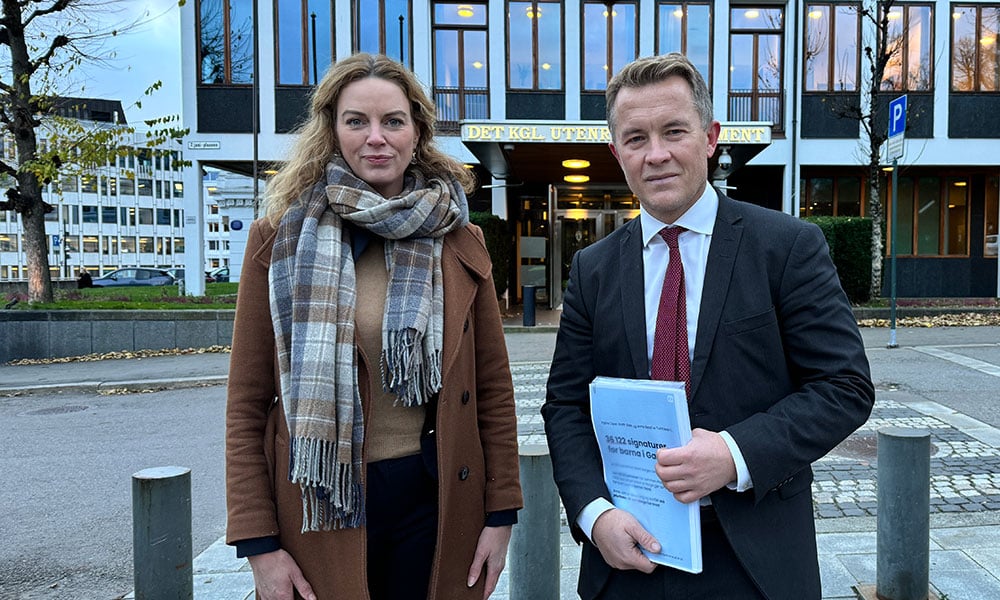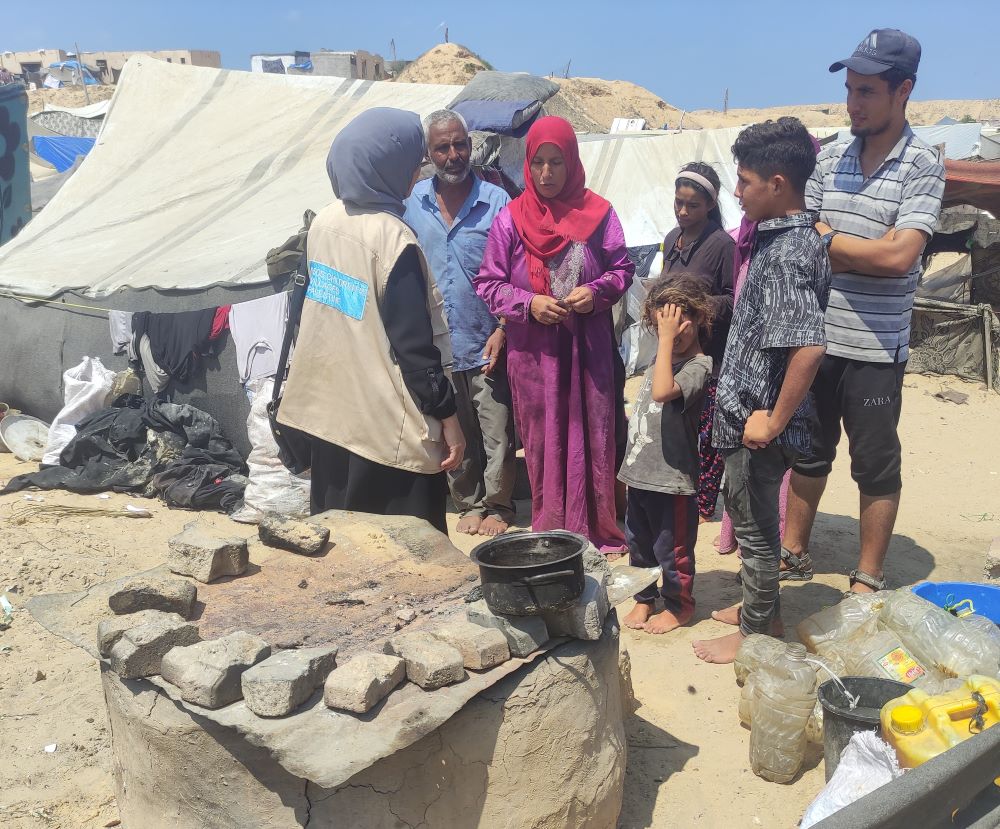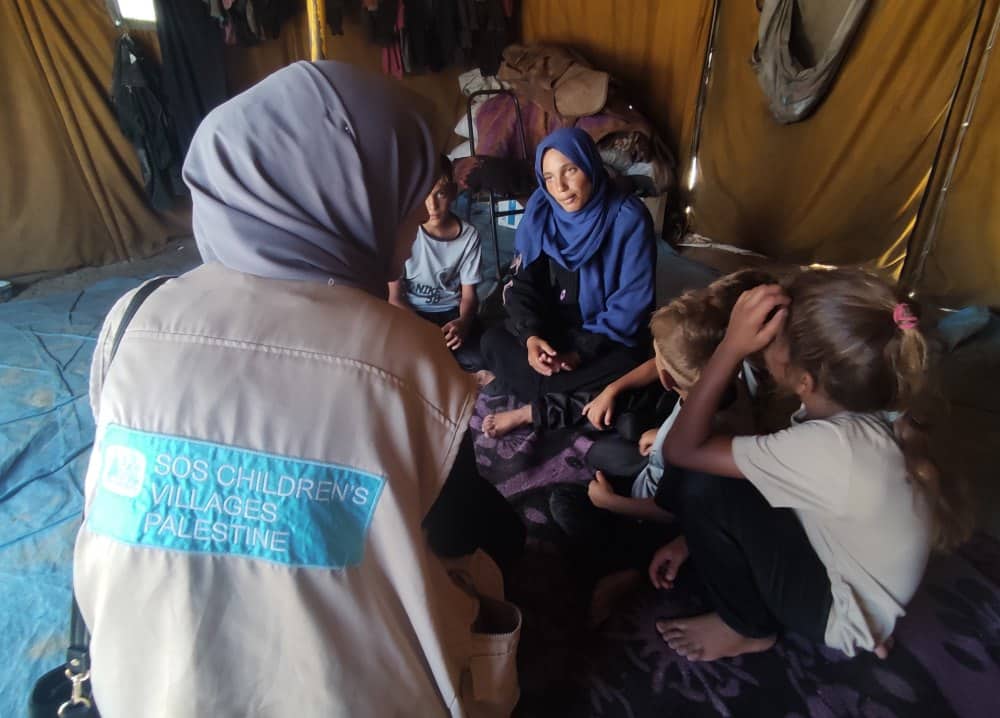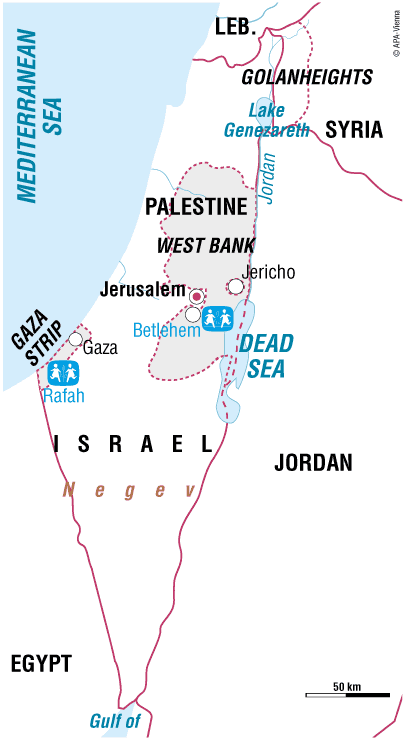
Vi er i Palestine
Political uncertainty continues to affect Palestine
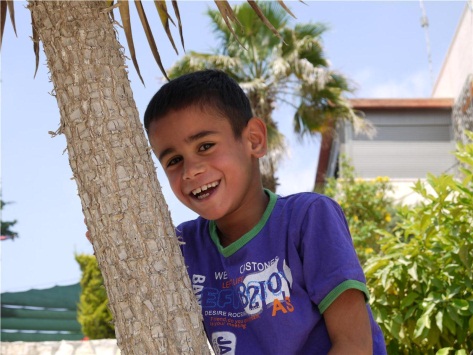
Although over one hundred countries now recognise Palestine as a state, it does not have full international recognition; its future remains a source of dispute. The constant conflicts in the area have resulted in a Palestinian diaspora of about six million people, who are dispersed mostly in neighbouring countries; it is estimated that over four million of them are refugees.
A society marked by violence
The situation for Palestinians in the Gaza Strip and those in the West Bank is different. In 2016, around 42 per cent of Gazians were unemployed. The figures for the West Bank state that about 18 per cent of the population is unemployed (World Bank estimates). The people of Palestine cannot always access adequate health care. In some cases, borders impede free movement, and patients are not able to reach the medical care they need in time. At other times, there is a lack of essential medical supplies.
.
Children in need of protection
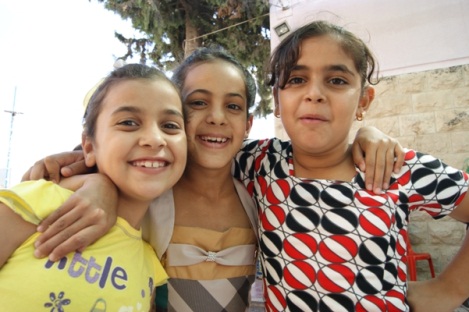
Palestine has a very young population: over 53 per cent are under the age of 18. The lives of children have been shaped by years of conflict and instability; as the economic situation has deteriorated, there has been a decline in programmes that could improve the lives of children. Although some international organisations work in Palestine, it is sometimes difficult to reach the population due to the violence.
There is also a lack of investment in housing, education and health care. The number of households living in poverty is increasing, especially those with more than three children. As incomes have fallen, food has become more expensive. These conditions force children to work; they are mostly involved in the running of family farms or enterprises. The absence of job opportunities for young people is acknowledged as a problem by the authorities, who are aware that unless there is a radical change in the situation, life will become increasingly hard for future generations.
SOS Children's Villages in Palestine
Strengthen families: SOS Children's Villages works with local organisations and communities to support vulnerable families so that they can stay together. We ensure that they have access to basic goods and services such as health care and education. We also provide training and advice so that parents can break the cycle of poverty and generate an income to look after their children.
Care in SOS families: If, in spite of all support, children are unable to stay with their parents, they can find a new home in an SOS family. Children grow up with their brothers and sisters in a safe environment. Some families live integrated in the community. Wherever possible, we work closely with the children’s family of origin, so that the children can return to live with them.
Education: SOS Children’s Villages works to make sure that children receive a good education, which will help them in the future. We run a kindergarten and primary school in Palestine. These educational centres are attended by children in our care and those from the neighbourhood.
Support for young people: We support young people until they are able to live independently. We give them access to further education and vocational training so that they have the right skills to find a job, or start their own business.
Emergency relief: We have also provided emergency relief when the situation has been particularly critical. Most recently we support vulnerable families and children. The Interim Care Centre provides short-term care for children, while we work with their families. Once the families have received the support they need, children return to their home.
Website of SOS Children's Villages Palestine
(available in English)
